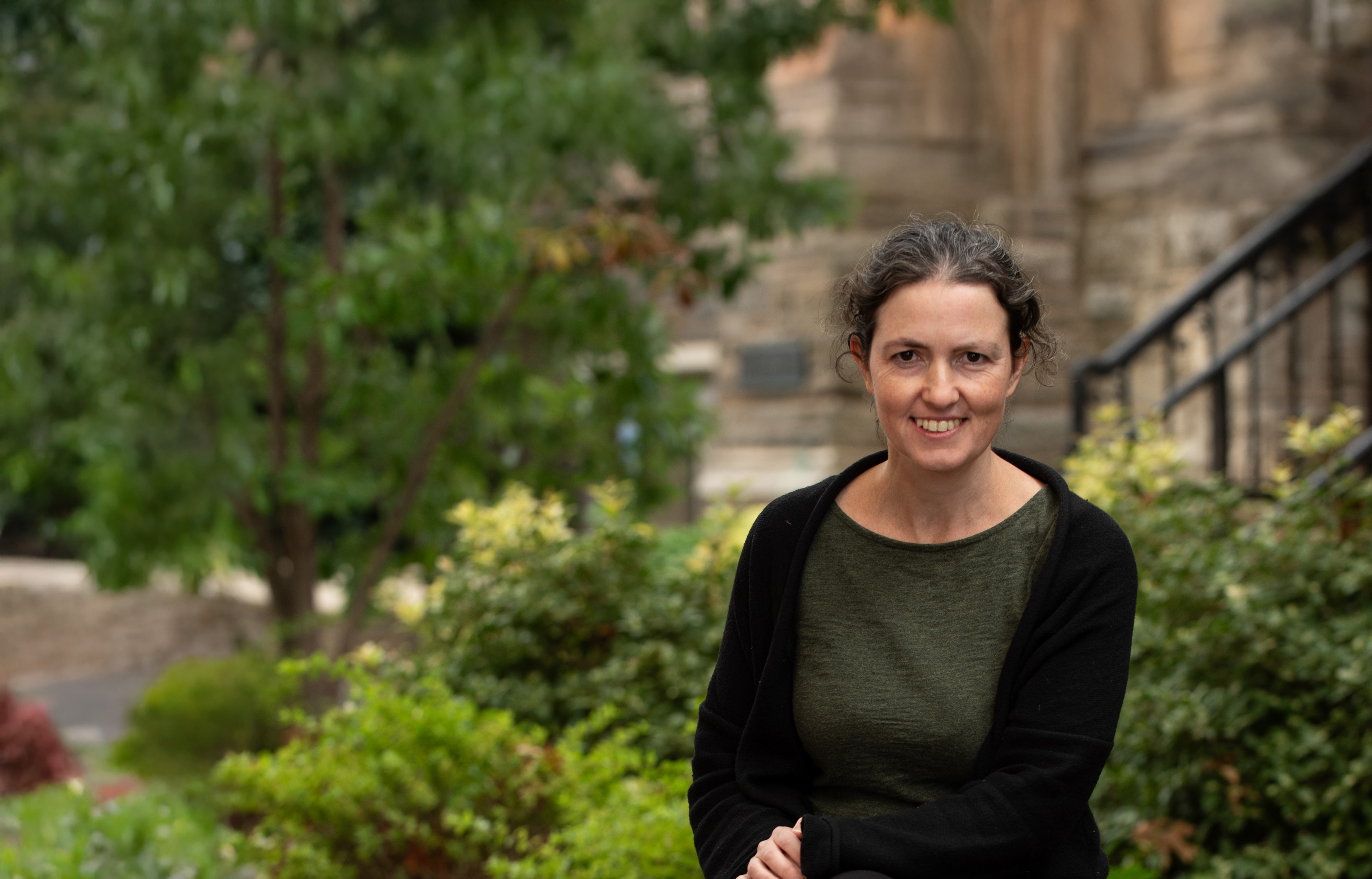
Faculty Spotlight Edith Beerdsen
Former chemist studies the litigation puzzle
Edith Beerdsen
Assistant Professor of Law
By Suzi Morales
Assistant Professor of Law Edith Beerdsen thrives on figuring out why things are the way they are.
Currently, she teaches courses at Temple University Beasley School of Law including civil procedure and evidence and studies how the structure of the adversarial system affects lawyering.
But Beerdsen didn’t always plan to be a lawyer and legal scholar. She holds a master’s and a doctorate in computational chemistry. She started her career studying the shape of zeolites, which she describes as highly absorbent “microscopic sponges” – like the silica packets in shoeboxes – that are often used in the petroleum industry.
Tiny absorbent particles might not seem to have a lot in common with litigation strategy, but Beerdsen says that what interested her in both chemistry and law was solving puzzles.
From the lab to the law
After working in chemistry for a number of years, Beerdsen began considering broader long-term career opportunities. She recalls looking for fields where she could use her analytical mind to address practical problems, “and that’s how ultimately I landed on the law.”
Beerdsen graduated from Columbia Law School and began working as a litigator in the New York office of Davis Polk & Wardwell. She developed a specialty working on cases with scientific and economic expert witnesses and became very curious about the factors that influence litigation. She also remembered how much she enjoyed the academic environment when she was earning her PhD in chemistry. Eventually these interests led her back to academia, this time as a law professor, first at the prestigious NYU Lawyering Program before joining the Temple Law faculty.
Drawing on her experience as a litigator, Beerdsen says, “I’m really interested in how the adversarial litigation system in this country affects how lawyers actually litigate cases both when it comes to procedural aspects of litigation, but also when it comes to evidentiary issues.”
What shapes litigation?
Beerdsen’s research has looked at how the rules of evidence and civil procedure shape litigation. She also considers how courts allow gamesmanship to affect the process. At times, she believes, strategic considerations are not necessarily aligned with other values of the adversarial system.
“There is a lot of strategy in the system that can’t really be explained by reference to more traditional values like accuracy or fairness or those kinds of values. But strategy seems to be something that the system values in its own right”
Edith Beerdsen
Beerdsen says litigators who read her articles questioning common adversarial tactics sometimes push back that “this is how the game is played,” but she asks whether legal gamesmanship leads to optimal outcomes. For example, in a recent article on “Discovery Culture,” she argues that, as there are fewer and fewer trials, the norms and practices of discovery often have an underappreciated
impact on civil litigation results. Moreover, she states that this may contribute to inequality and lack of transparency in the litigation process, as parties with greater resources exert greater influence.
Currently, Beerdsen is working on a series of articles exploring the tension in civil procedure between litigation strategy and values like fairness. She is exploring how courts influence litigation strategy and how lines could be drawn between fair strategy and maneuvers that should be prevented.
Beerdsen also is studying how the adversarial process negatively affects the reliability of scientific evidence in litigation. She says, “That feels to me like a real puzzle project because it asks the question, ‘How do we design the [legal] processes for the creation of a research process that results in reliable outcomes? What roles can lawyers and advocates play in that?’”
While she is now many years removed from studying the absorptive properties of zeolites, Beerdsen has never strayed from the challenge of solving puzzles. And as litigation evolves, she will have plenty to solve.
